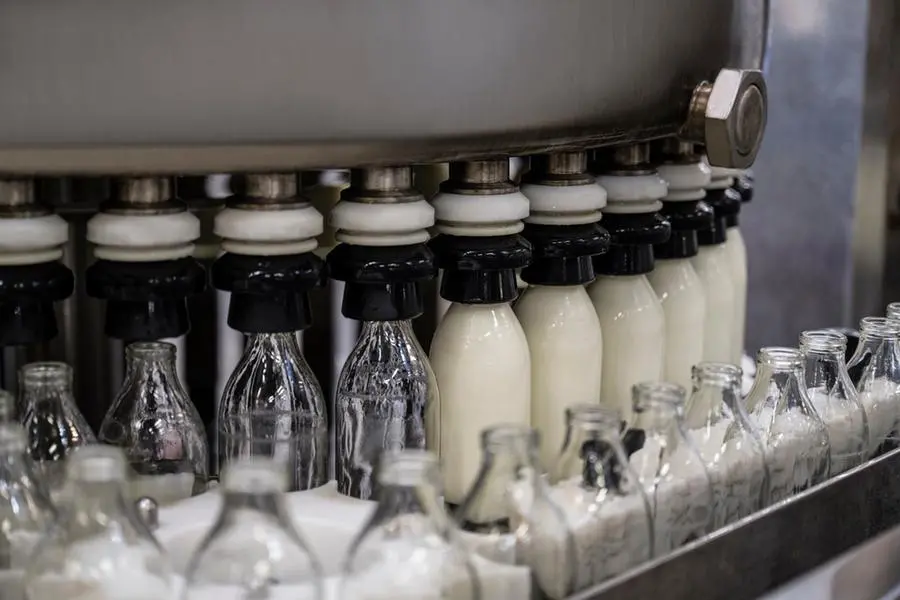PHOTO
The Mleiha dairy farm will start production in June, housing a total of 1250 cows with an additional 1250 cows that will be imported this year, aiming to reach 5,000 cows in three years instead of five.
Daily milk production will increase from 75 to 310 tons over the same period with an approximate budget of Dh600 million.
During a tour of the farm, operational details were revealed. The farm will encompass five barns, each half a kilometre long. The cows involved in this project are not medically inseminated or treated, nor are they given any medications or growth enhancers; and they are fed complete, healthy food.
Within three years, the dairy farm will become the largest productive endeavour for clean milk, focusing on producing milk rich in A2A2 protein, renowned for its numerous health benefits.
Each cow wears a collar that serves 15 functions, from monitoring health and nutrition to sensing emotions and movements. Data collected, including milk quantity, is sent directly to a centralised data centre.
Amenities such as water sprinklers, which keep the cows comfortable while eating, and fans to repel insects, contribute to the animals' well-being. The barns are equipped with systems that spray water and mist.
Furthermore, an autonomous robot facilitates continuous and easy access to food for the cows, streamlining the feeding process.
After milking, the milk is carefully packaged in recyclable dark paper cartons to shield it from light and air exposure, thus preserving its quality. This innovative approach replaces traditional glass packaging, which can compromise milk quality due to light and oxygen exposure.
The first phase of the Mleiha Dairy Farm was inaugurated on Monday, in the presence of Sheikh Sultan Al Qasimi. This farm is set to be the third phase of a comprehensive plan that includes cow-breeding and poultry projects near the expansive wheat farm in Mleiha, creating a total of four stations for food production.
As announced during the inauguration, the poultry farm will also be opened shortly in the same location. The poultry will be of original lineage, slow growing. Unlike other poultry, these won't be fed growth accelerators which could end up in the meat and affect consumers of all ages.
Copyright © 2022 Khaleej Times. All Rights Reserved. Provided by SyndiGate Media Inc. (Syndigate.info).





















